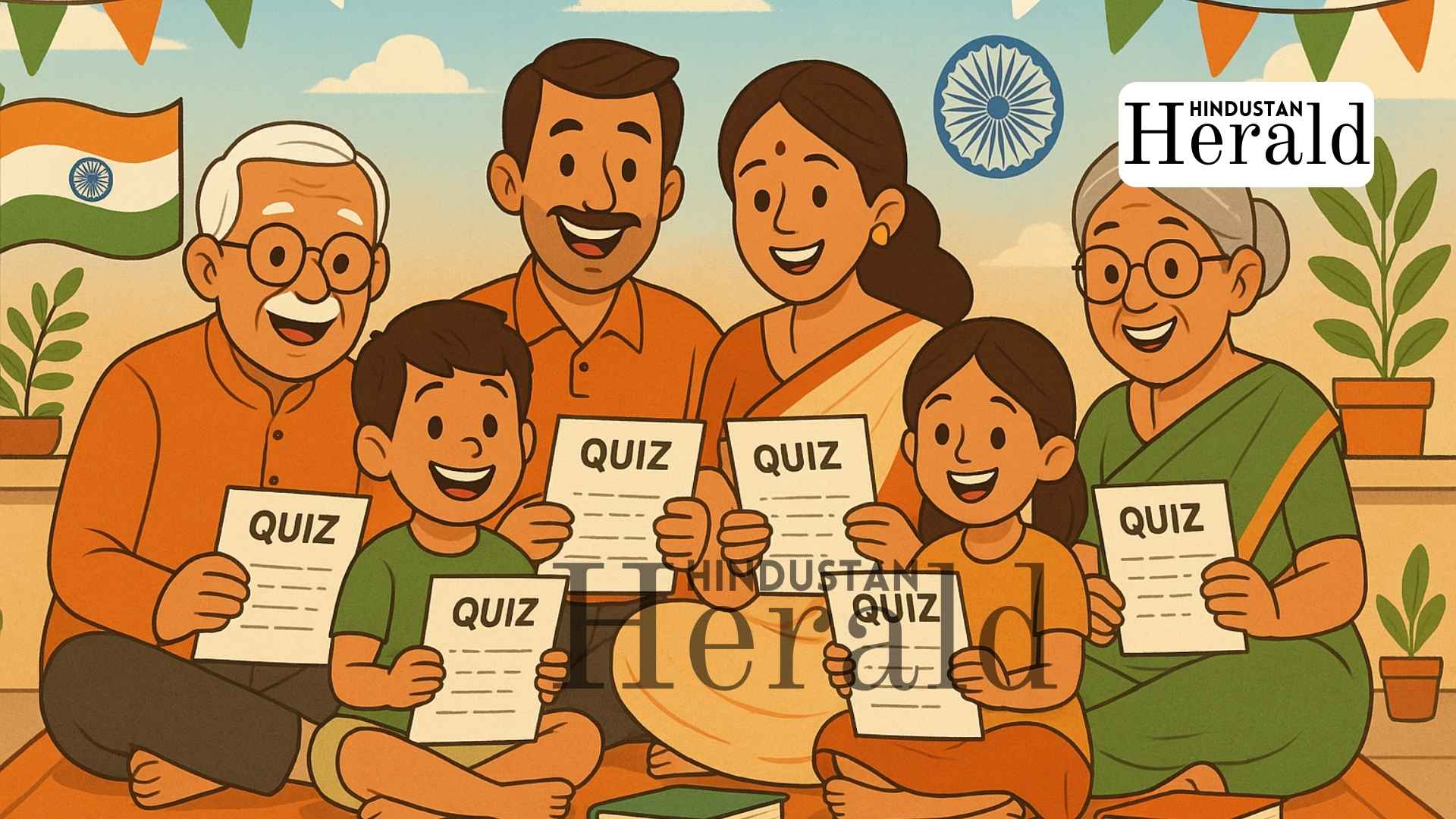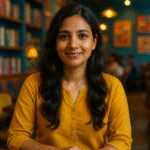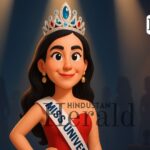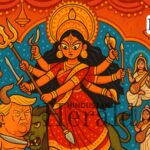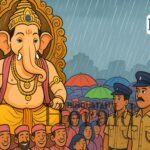New Delhi, August 13: There’s something quietly powerful happening across India this week. Not in the newsrooms or on the stages, but in classrooms, kitchens, and apartment courtyards. Instead of watching patriotic films or forwarding chain messages, more and more people young and old are sitting down and doing something surprisingly meaningful: answering questions. Or at least, trying to.
As the country prepares to celebrate 78 years of independence, a growing number of Indians are turning to an old-school format to revisit the past: the Independence Day quiz. Simple, unpretentious, and deeply resonant, this trend is turning memory into conversation and turning celebration into reflection.
And it’s not just about facts. It’s about feeling about pausing long enough to remember the stories we were never told properly, or perhaps never listened to fully.
A Gentle Rebellion Against Passive Celebration
The last few years have seen Independence Day take on a predictable rhythm. Flag hoistings, WhatsApp forwards, patriotic playlists, and Instagram reels with tricolour filters. It was all there visible, loud, performative even. But something, many felt, was missing.
This year, though, something changed.
It began, quietly enough, in schools. A few teachers in Delhi and Bengaluru decided to swap cultural dances for trivia sessions. “We realised the students were clapping through Independence Day without understanding it,” said Meera Dutt, a history teacher at a CBSE school in South Delhi. “So we asked them questions instead. And the silence that followed some of those questions that was telling.”
Questions like: Who wrote the National Pledge? When was our State Emblem adopted? Who founded the Indian National Army?
Within days, what started as a classroom activity began surfacing in other spaces. In Kolkata, a youth collective ran a live quiz at a public park with over 200 participants. In Jaipur, a local radio station began airing hourly “freedom questions,” with listeners calling in to share answers and memories.
When Families Become Classrooms
The revival isn’t just institutional. It’s deeply personal.
In cities like Pune and Hyderabad, entire families are turning Independence Day weekend into something new: a shared learning experience. Parents are printing quizzes. Grandparents are narrating the answers. Children are asking the kinds of questions they never saw in school books.
Take Sandeep and Anjali Kapoor, residents of a housing society in Noida. On the evening of August 12, they hosted a “freedom quiz night” on their terrace. “We had 25 people show up, from ages 9 to 70,” said Anjali. “What struck me was how much we didn’t know and how much we wanted to.”
There was laughter when someone guessed Bhagat Singh as India’s first Prime Minister. There was awe when they learned that 26 January was originally observed as Purna Swaraj Day in 1930. And there was pride when an 11-year-old named every colour of the national flag, including the navy-blue Ashoka Chakra.
It wasn’t about getting things right. It was about getting curious again.
Beyond Slogans: A Culture of Rediscovery
In many ways, this trend fits into a larger cultural shift underway in India especially in urban and semi-urban pockets. Over the past few years, there has been a quiet yearning for things that feel real. We’re seeing it in the resurgence of regional food. In the return of handmade fabrics. In the slow revival of folk music and classical instruments at music festivals.
The Independence Day quiz sits comfortably in that space. It doesn’t pretend to be grand or revolutionary. It doesn’t offer the thrill of a trending hashtag. What it offers is a pause a moment to sit still and ask: What do I actually know about the country I call mine?
And that’s a powerful question in 2025.
Digital Platforms Catch On, but Stay Human
Online portals have been quick to ride the wave but they’ve also kept the tone rooted and respectful. Websites like Testbook, Jagranjosh, and ProProfs have launched curated Independence Day quizzes, available in multiple languages and tailored for different age groups.
But even in digital form, these quizzes are less about screens and more about spark. Teachers are printing them out. Families are discussing them over meals. Youth clubs are turning them into street contests.
In Varanasi, a group of undergraduate students hosted a quiz at a local chai tapri, offering free samosas to anyone who could name the author of “Vijayi Vishwa Tiranga Pyara.” (It was Shyamlal Gupta ‘Parshad’, for the record.)
“It was messy, noisy, and full of life,” said Tushar Singh, one of the organisers. “We didn’t care if people got the answers wrong. We cared that they were trying.”
Why This Moment Feels Different
Perhaps what makes this quiz wave so compelling is that it comes without pressure. There’s no national directive, no viral campaign, no textbook incentive. Just a quiet belief that knowing matters. That the freedom struggle wasn’t a single event, but a series of sacrifices, ideas, and people whose names don’t appear on currency notes.
And while it’s true that a quiz can’t capture all of that, it can do something else. It can open the door.
“This is the first year I’ve seen my teenage son ask his grandmother about Partition,” said Rukmini Joshi, a working mother in Ahmedabad. “And she answered, in a way I never heard before.”
That’s the thing about questions. They don’t just test memory. They start conversations.
Independence, Reimagined
So here we are India at 78. A country that has grown fast, argued loudly, and changed dramatically. But one that, every August, still stops long enough to look back.
And maybe that’s what makes this quiz trend more than just a game. It’s not about scoring points. It’s about making meaning. About taking time to remember not just the names of leaders, but the values they fought for.
In a year full of distractions, this return to reflection feels quietly radical. And as more people reach for quiz sheets instead of patriotic memes, a new kind of independence emerges the kind that comes from understanding, not just celebrating.
Stay ahead with Hindustan Herald — bringing you trusted news, sharp analysis, and stories that matter across Politics, Business, Technology, Sports, Entertainment, Lifestyle, and more.
Connect with us on Facebook, Instagram, X (Twitter), LinkedIn, YouTube, and join our Telegram community @hindustanherald for real-time updates.
Explores the evolving intersections of art, travel, food, and fashion, highlighting cultural voices from across India.

